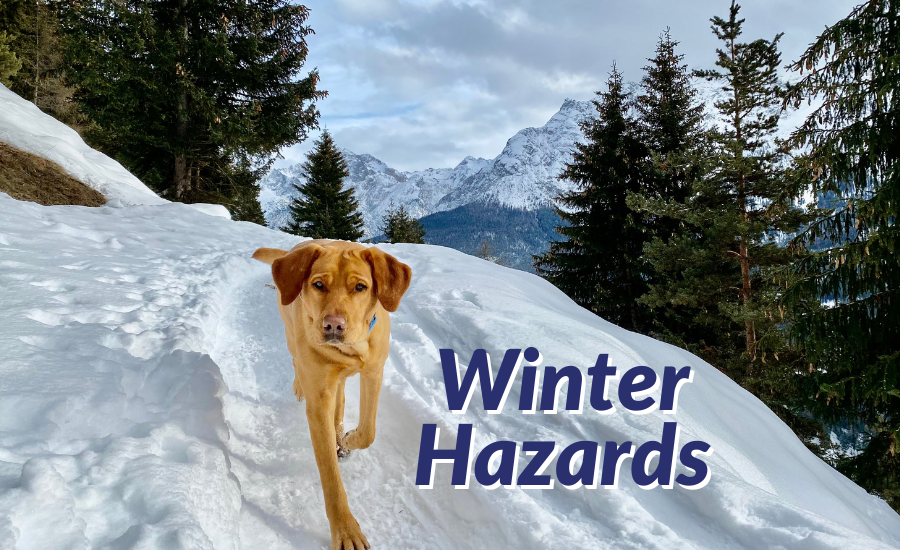The Magic of Winter
Some of us love it while others can’t wait for it to be over, but no one can deny the beauty of winter. Icicles hanging from branches on a tree, the stillness of a quiet snowfall, the picturesque loveliness of a blanket of snow. Whether you like to immerse yourself in the great outdoors or prefer to watch it from afar, winter is part of the charm of living in a place that has four distinct seasons.
While its allure is singularly personal, many of our pets love to frolic and play in a winter wonderland.
Outdoor Hazards For Your Pet
Whether your pet is a romper stomper who loves the snow or prefers to live life as a delicate flower, there are facets of winter that can be hazardous to them. Many of the same things that are risky for humans during the winter months are also risky for pets. For example, your pet is susceptible to:
- Skin irritation
- Poisoning
- Hypothermia
- Frostbite
during the winter months, but there are some simple things that you can do to make sure they stay safe.
Protecting Your Pet In The Great Outdoors
Whether your pet wants to play outside in the frosty cold or simply tolerates going out when necessary, it’s important to be mindful of how long they’re outside, especially if they’re elderly, have underlying medical conditions, or are a small, short-haired breed. If they’ll let you, it’s a good idea to provide paw protection (boots or shoes) and a jacket or sweater for your pet bestie to make sure they don’t get too cold.
In addition to shoes or boots, paws can be protected with a coat of petroleum jelly or another balm or cream your vet recommends. This will protect them from cracking or sustaining injury from:
- Shards of ice
- Ice melt
- Sand or gravel
- Rock salt
It’s also important to wipe their paws to make sure they’re dry when they come inside.
One of the most hazardous aspects of winter is antifreeze. It’s crucial that you wipe up antifreeze spills completely and that you keep antifreeze in a sealed container that’s not accessible to pets. Antifreeze is potentially fatal to pets and it acts very quickly. This isn’t a hazard to be taken lightly.
Indoor Safety During The Winter
There are indoor safety concerns for pets during the winter, too. It’s important to make sure that there is a barrier between them and:
- A wood or pellet stove
- Space heaters
- Electrical cords used for space heaters or other apparatus
- Open flames like candles
It’s also important to keep them away from drafts and ensure they have a warm place to sleep.
In addition to those indoor safety tips, it’s always important to make sure your pet has plenty of water (even when they’re outside playing in the cold) and perhaps even a slight increase in calories to help keep them warm during colder temperatures.
Minnesota Veterinary Hospital
If you’re in the Shoreview, MN area, Minnesota Veterinary Hospital is available to help you and your pet at any time. If you have any concerns about their well-being during the coldest months of the year, contact us so we can care for them.
Image credit: Pexels

